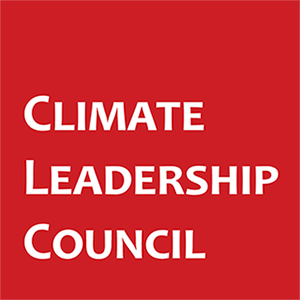Senator Hickenlooper (D-CO), former FERC Chair Neil Chatterjee, and Vistra Corp. CEO Curt Morgan make the case for carbon pricing at virtual event
WASHINGTON, DC – An economy-wide carbon price is key to ensuring all Americans have access to affordable and reliable electricity as we transition to a low-carbon economy, according to a new report released Wednesday by the Climate Leadership Council at a virtual event. The report, co-authored by former FERC Chair Neil Chatterjee and Council CEO Greg Bertelsen, outlines why a carbon price and a more reliable energy grid are essential for meeting deep decarbonization goals by midcentury.
“In order to successfully decarbonize the U.S. economy, we will need to increase our reliance on the electric grid. As this transition takes place, the grid is coming under unprecedented strain from more frequent and prolonged extreme weather events,” Bertelsen said. “Thankfully, carbon pricing is naturally aligned with grid reliability. It works within our existing energy system to add capacity where it is needed and to reduce demand where possible, providing the maximum flexibility as we make the much-needed clean energy transition.”
Among its key findings, the report, “Achieving Grid Reliability and Decarbonization through Carbon Pricing,” highlights how a carbon price improves grid reliability:
- Carbon pricing is technology- and location-neutral. Because carbon pricing does not pick which zero- and low-carbon options contribute to the resource mix, it efficiently moves the power sector toward the right set of resources to deliver emissions reductions and ensure sufficient energy supply and operating reliability to meet customer demand, all at least cost.
- Carbon pricing sends a steady, predictable price signal. This provides investors, grid operators and power system planners with better data to forecast supply and demand trends and accommodate emerging and new technologies with a variety of attributes to build out the grid of the future.
- Carbon pricing fosters economy-wide innovation. This allows the U.S. to decarbonize its entire economy rapidly while creating headroom for the power sector to decarbonize in a manner that supports reliability for consumers.
“Carbon pricing supports long-term planning,” Chatterjee said. “A steadily-rising price on carbon provides a predictable signal that gives companies the clarity they need to make necessary investments in the energy system and incorporate new technologies into the grid.”
The event also featured a conversation with Senator John Hickenlooper (D-CO), who made the case for carbon pricing as the centerpiece of U.S. climate policy.
“Climate change is the defining challenge of our time, and Colorado is on the front lines,” Senator Hickenlooper said. “A carbon price and dividend is an essential part of the solution.”
Curt Morgan, CEO of Vistra Corp., a leading integrated retail electricity and power generation company, discussed how achieving grid reliability is foundational to addressing climate change.
“The push for lower carbon emissions will require greater electrification of the economy, which means a dramatic increase in demand for electricity,” Morgan said. “Electricity is the lifeblood of the American economy, so we must accomplish the transition to a carbon-free grid by balancing affordability, emissions, and reliability. Decarbonizing the electric sector and the broader economy with a price on carbon is the most efficient, equitable, and transparent way to incentivize investments in low- to no-carbon resources. In addition, coupling a carbon border adjustment fee with a price on carbon will ensure the competitiveness of U.S. companies and incentivize the international community to participate in decarbonization. This will provide the least disruptive transition to a carbon-free economy while ensuring Americans and American companies have a level playing field.”
The Climate Leadership Council works with a broad set of stakeholders to promote the most cost-effective, equitable and politically-viable climate solutions.

